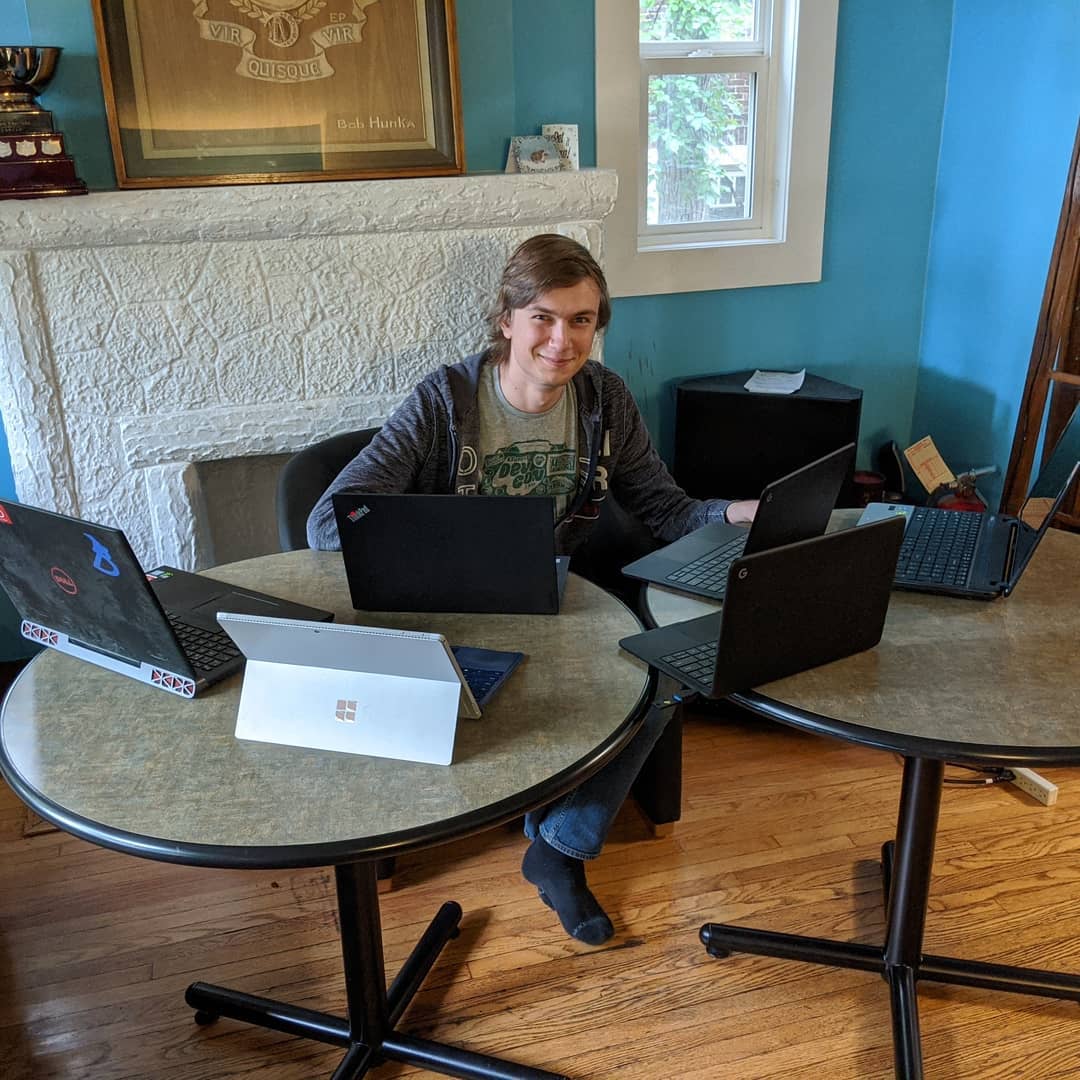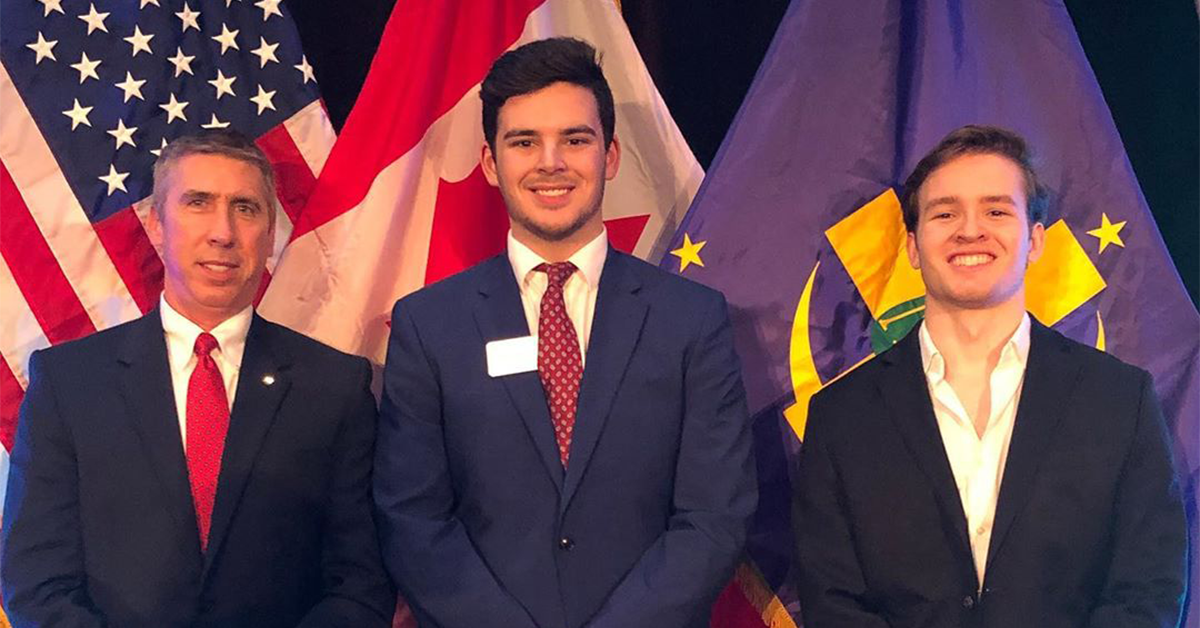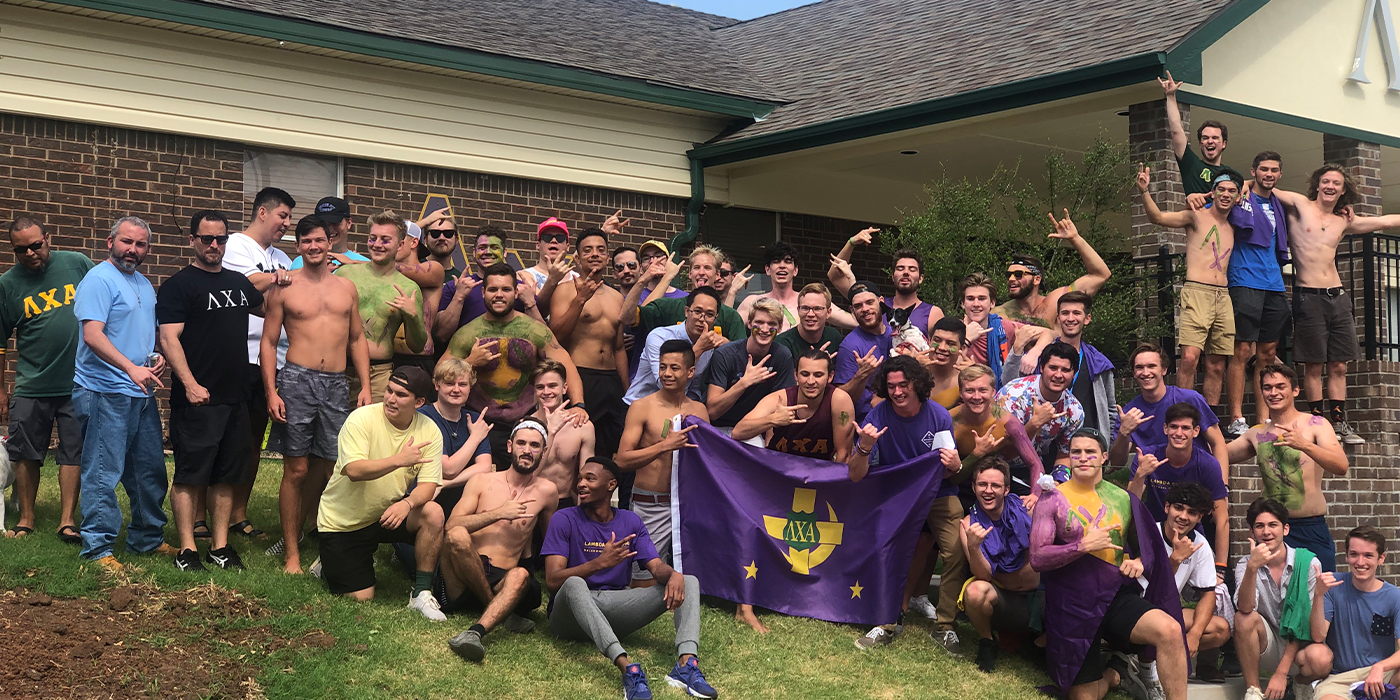The Importance of navigating valleys rather than peaks.
Arseniy Kouzmenkov (Alberta, Epsilon-Rho)
Editor’s Note: This article was written by Arseniy Kouzmenkov (Alberta, Epsilon-Rho), in collaboration with Nick Bratvold (South Dakota, Alpha-Gamma).
Standing on the peak of a mountain, the world watches itself for a moment. There is an ignorant bliss looking out, forgetting the pain in your legs and shortness of your breath. In one direction, you see the valley you rose from and, ahead, the sharp cliff you will inevitably descend. You can hardly believe the di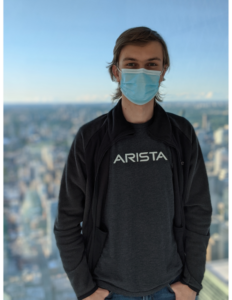 stance you have traveled or what you must ask of yourself for the journey ahead. Yet, your muscles have begun to memorize — you will be on a new peak soon. Mine, like yours, is a story of peaks and valleys.
stance you have traveled or what you must ask of yourself for the journey ahead. Yet, your muscles have begun to memorize — you will be on a new peak soon. Mine, like yours, is a story of peaks and valleys.
I was born in Moscow at the turn of the century. Raised in Belarus, I followed my mother to Dubai at the age of 12. There, I was required to take an entrance exam before beginning my schooling. Although I could hardly speak English, my math scores gave me the edge I needed to earn admission.
Reflecting on my early years in Dubai, I remember prejudice and inequity alive and well. One’s passport, nationality and race very much dictated their income. As I was bullied at school for my language and identity, I learned to subdue my accent. At the time, I understood assimilation — the blurring of the lines between my heritage and new home — to be the price of inclusion. I recall a moment, in grade nine, when I asked a teacher to guess where I was from, based on my accent alone. With pride, I smiled as he guessed Germany, a country far enough west it would mask my true origin.
There were many challenges associated with displacement and coming to age on foreign soil. I was not a strong student; that is, until a teacher woke me up to my ability. With help from this mentor and after having very nearly flunked out my junior year, I began to visualize a real future for myself, with goals of my own design. One year later, on graduation day, I stood proudly among those at the top of my class.
Considering my further education, I looked still farther west. Although many attractive institutions lay opposite the Atlantic, few were financially viable. I was surprised to learn that the University of Alberta, a top-five Canadian institution, would cost over four years, what many other similarly ranked U.S. institutions cost in one year alone. It was an easy calculation, and, in September 2017, I moved into my dorm in Edmonton to begin studying computer science.
I assumed the rest of the world must be like Dubai. Arriving in Canada, I was pleasantly surprised to learn how little judgment was expressed for my background by my peers and professors alike. Accepted and welcomed in my new home, I took up the opportunity to immerse myself in all the opportunities that the university had to offer, quickly becoming a teaching assistant, participating in programming competitions, and joining the executive committee of our university’s scuba club alongside Lambda Chi Alpha.
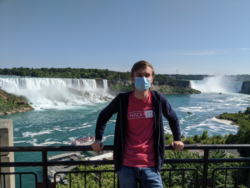
Ritual was a period of strong introspection for me. It caused me to ask: how do I generate value? I began to see Lambda Chi as a platform for helping others as much as I can, however I can. Above all, I appreciated that members had the opportunity to reform, evolve, and drive the change they wanted to see in the Fraternity.
The greatest opportunity of being an officer in a smaller chapter is also the greatest weakness: flexibility. Because we can change rapidly, we do. But when it comes to doing the work, there are more tasks than people. The running line often becomes, someone should do that, but not me. There is a computer science joke that, if you give two engineers a job that should only take one day for one engineer to complete, it will take three times longer and not twice as short. I knew that if I wanted to meaningfully improve my chapter, I should not wait on others.
Taking this sentiment to heart, I served simultaneously as recruitment chair and fraternity educator. One year ago, before beginning my term in these offices, I lost my first presidential race by a historically close margin. I experienced the five stages of grief in twelve hours, but I quickly learned that, if I was going to be a leader, I could not take failure personally, but rather use it to learn and grow. Over the next year, which included applying for and being turned down for internships across North America, I considered my personal value proposition. If I cannot articulate what I bring to the table, how can I convince anyone else?
Today, I serve as president of Epsilon-Rho Zeta. Although I am grateful for the practical knowledge and professional development of serving as an officer, I have often found it difficult to unwind and relax. For most of my academic career, I have been employed full-time, making the Dean’s list, working as a teaching assistant, and serving the remainder of my time as an officer. I did all these things to lessen the financial burden on my family, to develop discipline, and to get far enough ahead to be able to uplift the rest of the people around me.
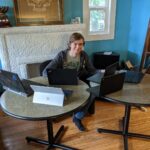 With such high personal expectations, I never let myself take a break. At times, this caused me to burn out, going as far as contemplating resigning from the offices I held to focus more closely on other priorities. The nights were often the most difficult. Left to my own thoughts, I would start to judge myself for not doing more, while fully understanding that more could not be done. Ultimately, however, I saw the needs of the Brotherhood, today, as a worthy investment for both my personal and my chapter’s development.
With such high personal expectations, I never let myself take a break. At times, this caused me to burn out, going as far as contemplating resigning from the offices I held to focus more closely on other priorities. The nights were often the most difficult. Left to my own thoughts, I would start to judge myself for not doing more, while fully understanding that more could not be done. Ultimately, however, I saw the needs of the Brotherhood, today, as a worthy investment for both my personal and my chapter’s development.
I am thankful to have had the opportunity to continue my growth at the 2020 Stead Leadership Seminar, which also happens to be the first leadership conference from Lambda Chi Alpha that I had the opportunity to attend. This was made possible after Epsilon-Rho was awarded one of the Karl J. Krapek Values Grants, which recognizes chapters for the living Lambda Chi Alpha’s core values. Like other small chapters, we understand that even simple changes can lead to massive increases in membership, and we are fortunate to have been given tools and strategies that will actually be useful. As we look to double our membership this fall, the training sessions were validating and reinforced our chapter’s shifting recruitment strategy.
The University of Alberta is known to graduate students after as many as five or even six years. If all goes according to plan, I will graduate in three and half—from an honors program at that! After December, my primary goal is to work on fulfilling projects in the area of Software Defined Networking and cloud infrastructure while saving as much capital as possible to start my own education nonprofit. I have fully embraced the idea of helping as many people around me to grow as possible, and I firmly believe that the brotherhood of Lambda Chi Alpha has aided me in becoming the best man I could be. Therefore, as an alumnus, I hope to donate to Lambda Chi and, if possible, serve as a mentor for future generations.
 To my Brothers across North America who, like me, are uncertain of their future after college, I say: you are not alone. Finding work after university is a numbers game. Use your resources, work your network, and make yourself known. Generate value for others and you will be noticed. During Stead, we were told to approach recruitment not with a proverbial shotgun, but with a sniper rifle, picking out the best men to join our fraternity. When applying for jobs, you should take the opposite approach. Apply everywhere, apply for everything, but don’t forget to aim for the area that aligns best with your personal goals.
To my Brothers across North America who, like me, are uncertain of their future after college, I say: you are not alone. Finding work after university is a numbers game. Use your resources, work your network, and make yourself known. Generate value for others and you will be noticed. During Stead, we were told to approach recruitment not with a proverbial shotgun, but with a sniper rifle, picking out the best men to join our fraternity. When applying for jobs, you should take the opposite approach. Apply everywhere, apply for everything, but don’t forget to aim for the area that aligns best with your personal goals.
I am thankful for Peter Yobo’s keynote address and believe its true power is not in its inspirational conclusion, but rather in the messiness and difficulty associated with achieving one’s goals. As my mother told me years ago in Dubai, “it is a very good thing to have a clear vision for the future, but do not be too specific about how you get there.”
In fact, failure just may have been my greatest teacher. I personally have a lot of issues with success stories — they never tell the full story. Sure, I am proud that I managed to learn a new language, that I graduated at the top of my class, that I enrolled at the University of Alberta, that I was elected chapter president, and even that I had the chance to work for Google. But all this misses the point. This was made possible after I was bullied as a Belarussian immigrant, nearly flunked out of school, could not afford college, was three times denied a U.S. visa, lost my first presidential election, and was rejected by more companies than I can count. Every success story has a messy backstory, failure, self-doubt, tireless work and frustrating periods of stagnation. Similarly, every success story has one part in common: persistence despite the difficulties encountered.
For me, it is how one navigates the valleys, not the peaks, that makes the man — the leader.
